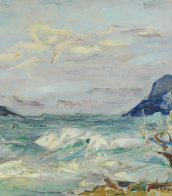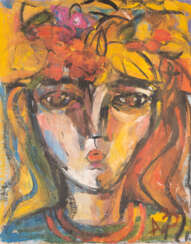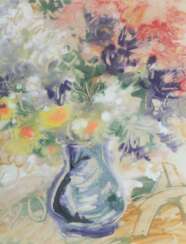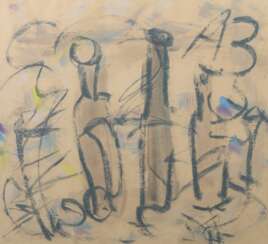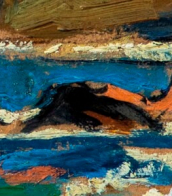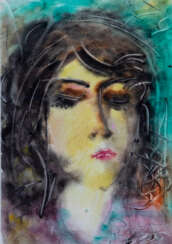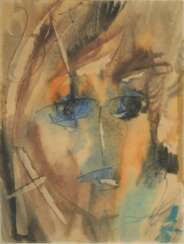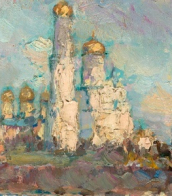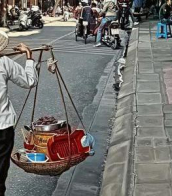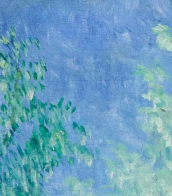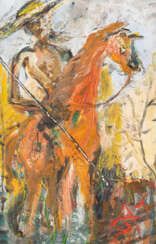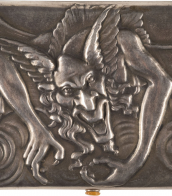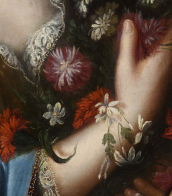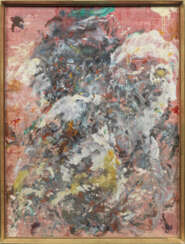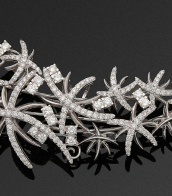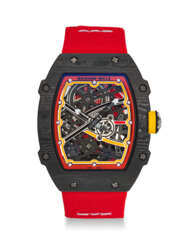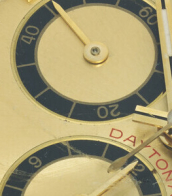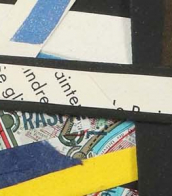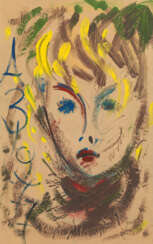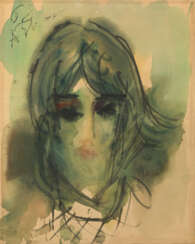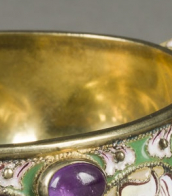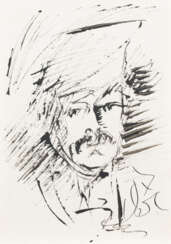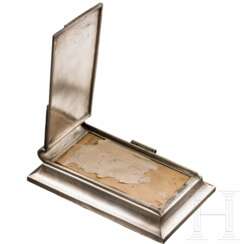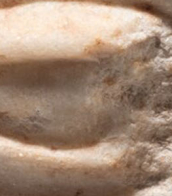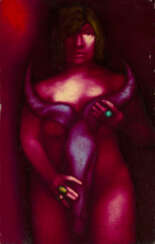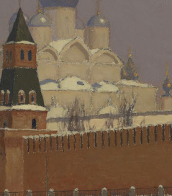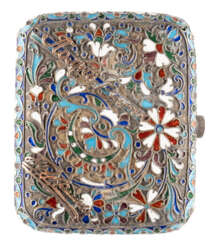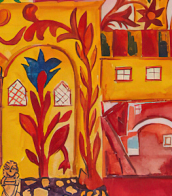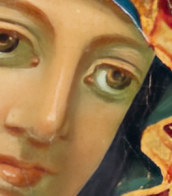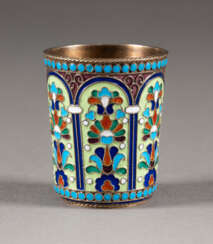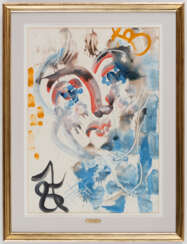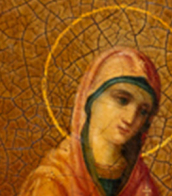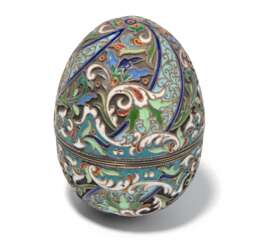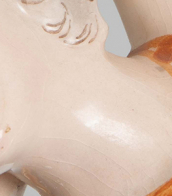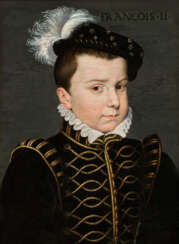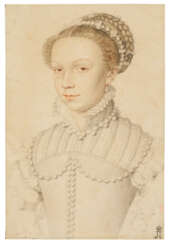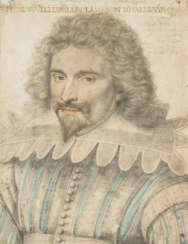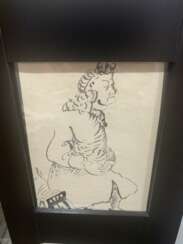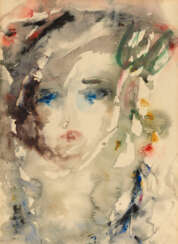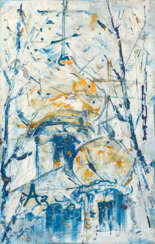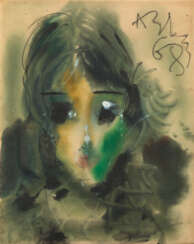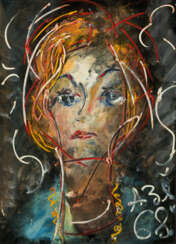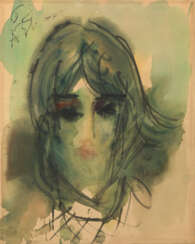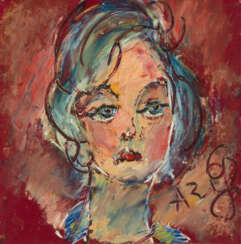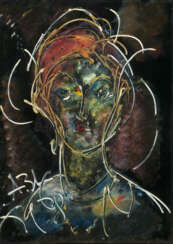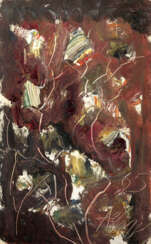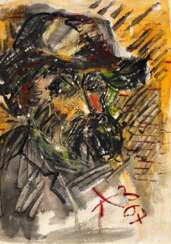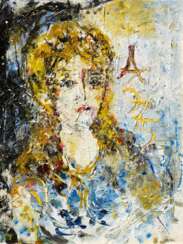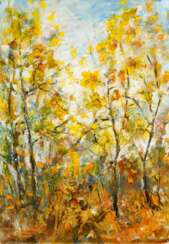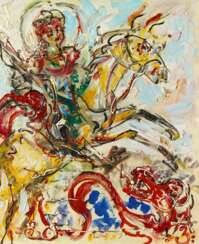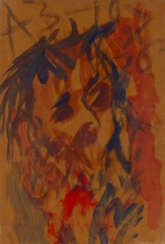zverev
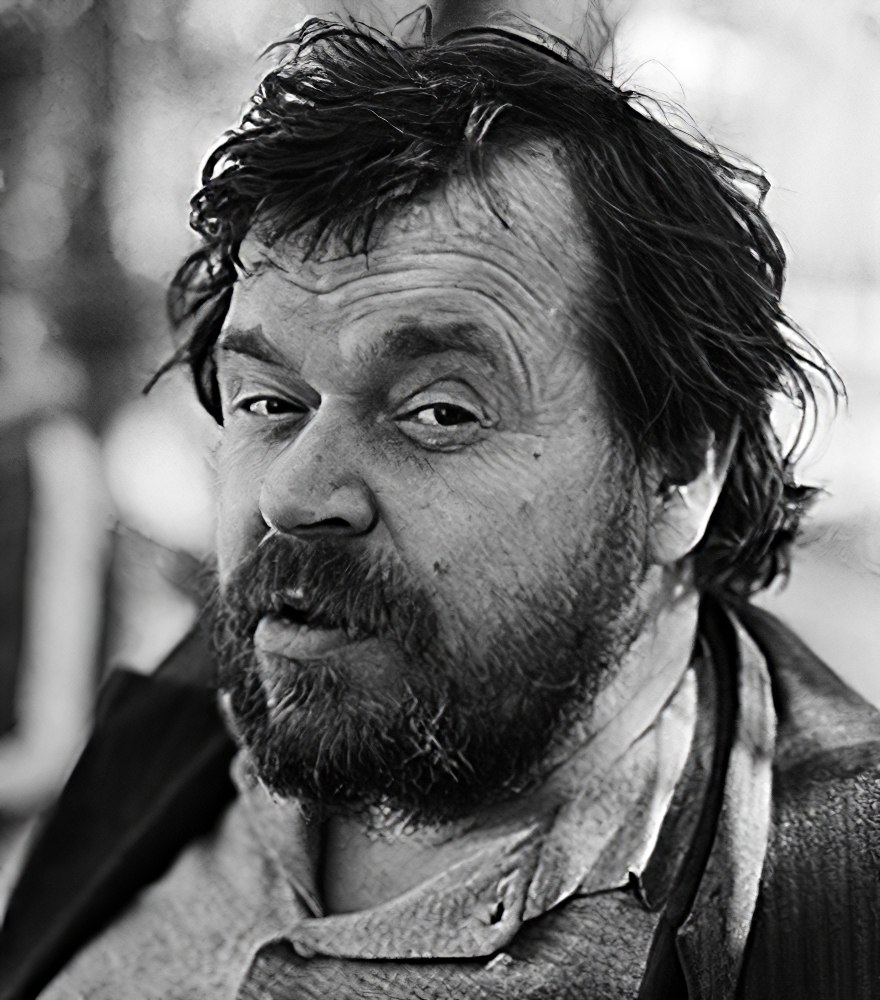
Anatoly (Anatoli) Timofeevich Zverev was a Russian artist, a member of the non-conformist movement and a founder of Russian Expressionism in the 1960s. He spent all of his life in Moscow.
He did not have a solo show in Russia until shortly before his death in 1986 and his work was exhibited in small, underground galleries. Throughout his career he was harassed and persecuted by the Soviet authorities especially as his international success grew.
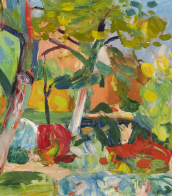

Anatoly (Anatoli) Timofeevich Zverev was a Russian artist, a member of the non-conformist movement and a founder of Russian Expressionism in the 1960s. He spent all of his life in Moscow.
He did not have a solo show in Russia until shortly before his death in 1986 and his work was exhibited in small, underground galleries. Throughout his career he was harassed and persecuted by the Soviet authorities especially as his international success grew.
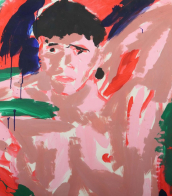

Anatoly (Anatoli) Timofeevich Zverev was a Russian artist, a member of the non-conformist movement and a founder of Russian Expressionism in the 1960s. He spent all of his life in Moscow.
He did not have a solo show in Russia until shortly before his death in 1986 and his work was exhibited in small, underground galleries. Throughout his career he was harassed and persecuted by the Soviet authorities especially as his international success grew.


Anatoly (Anatoli) Timofeevich Zverev was a Russian artist, a member of the non-conformist movement and a founder of Russian Expressionism in the 1960s. He spent all of his life in Moscow.
He did not have a solo show in Russia until shortly before his death in 1986 and his work was exhibited in small, underground galleries. Throughout his career he was harassed and persecuted by the Soviet authorities especially as his international success grew.


Anatoly (Anatoli) Timofeevich Zverev was a Russian artist, a member of the non-conformist movement and a founder of Russian Expressionism in the 1960s. He spent all of his life in Moscow.
He did not have a solo show in Russia until shortly before his death in 1986 and his work was exhibited in small, underground galleries. Throughout his career he was harassed and persecuted by the Soviet authorities especially as his international success grew.
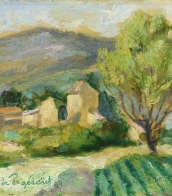

Anatoly (Anatoli) Timofeevich Zverev was a Russian artist, a member of the non-conformist movement and a founder of Russian Expressionism in the 1960s. He spent all of his life in Moscow.
He did not have a solo show in Russia until shortly before his death in 1986 and his work was exhibited in small, underground galleries. Throughout his career he was harassed and persecuted by the Soviet authorities especially as his international success grew.
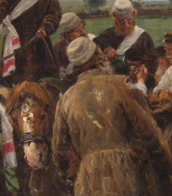

Anatoly (Anatoli) Timofeevich Zverev was a Russian artist, a member of the non-conformist movement and a founder of Russian Expressionism in the 1960s. He spent all of his life in Moscow.
He did not have a solo show in Russia until shortly before his death in 1986 and his work was exhibited in small, underground galleries. Throughout his career he was harassed and persecuted by the Soviet authorities especially as his international success grew.

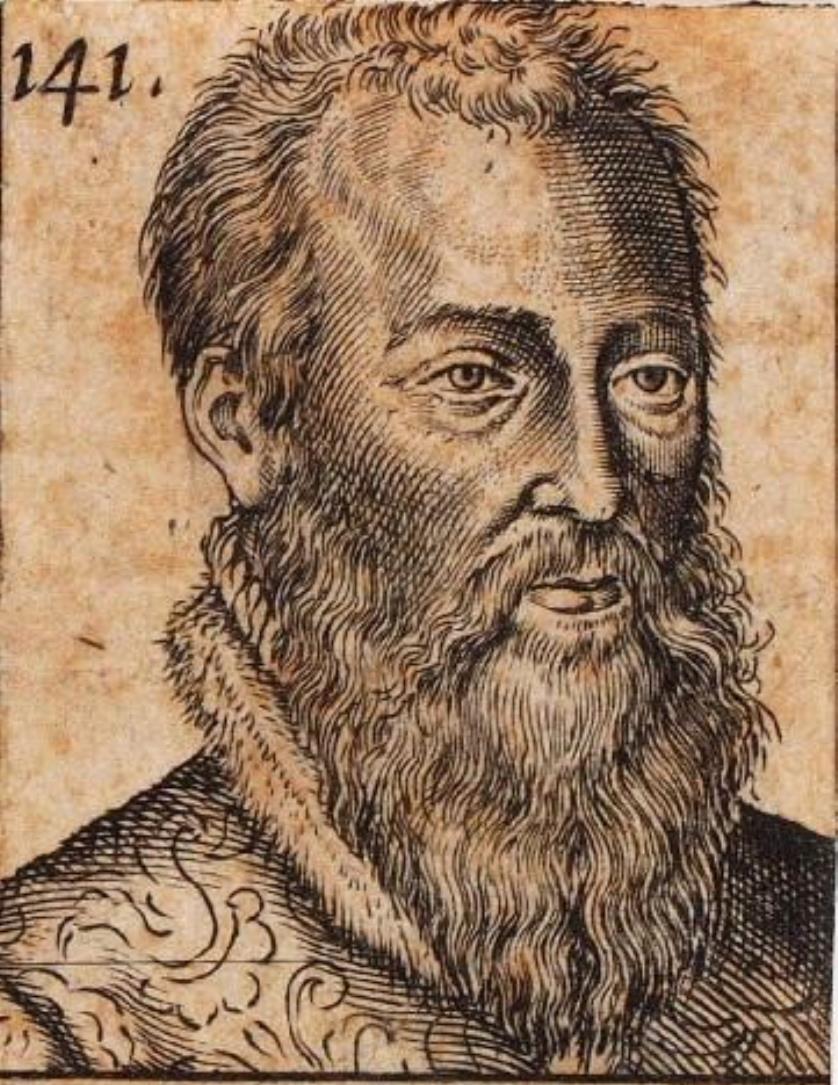
François Clouet was a major French Renaissance portrait painter.
François was the son of the painter Jean Clouet (1485-1540), from whom he learned painting. He became the favorite court portraitist of Kings Francis I, Henry II, Francis II and Charles IX.
François Clouet became famous for his mastery, accurately conveying the characters of people and meticulously painting their costumes.
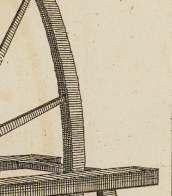

François Clouet was a major French Renaissance portrait painter.
François was the son of the painter Jean Clouet (1485-1540), from whom he learned painting. He became the favorite court portraitist of Kings Francis I, Henry II, Francis II and Charles IX.
François Clouet became famous for his mastery, accurately conveying the characters of people and meticulously painting their costumes.
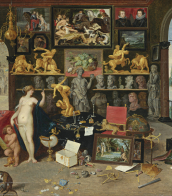

François Clouet was a major French Renaissance portrait painter.
François was the son of the painter Jean Clouet (1485-1540), from whom he learned painting. He became the favorite court portraitist of Kings Francis I, Henry II, Francis II and Charles IX.
François Clouet became famous for his mastery, accurately conveying the characters of people and meticulously painting their costumes.
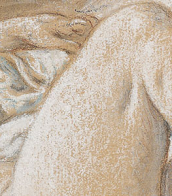
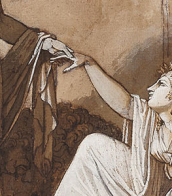

François Clouet was a major French Renaissance portrait painter.
François was the son of the painter Jean Clouet (1485-1540), from whom he learned painting. He became the favorite court portraitist of Kings Francis I, Henry II, Francis II and Charles IX.
François Clouet became famous for his mastery, accurately conveying the characters of people and meticulously painting their costumes.


Anatoly (Anatoli) Timofeevich Zverev was a Russian artist, a member of the non-conformist movement and a founder of Russian Expressionism in the 1960s. He spent all of his life in Moscow.
He did not have a solo show in Russia until shortly before his death in 1986 and his work was exhibited in small, underground galleries. Throughout his career he was harassed and persecuted by the Soviet authorities especially as his international success grew.
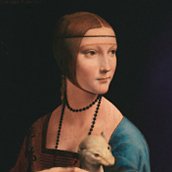

Anatoly (Anatoli) Timofeevich Zverev was a Russian artist, a member of the non-conformist movement and a founder of Russian Expressionism in the 1960s. He spent all of his life in Moscow.
He did not have a solo show in Russia until shortly before his death in 1986 and his work was exhibited in small, underground galleries. Throughout his career he was harassed and persecuted by the Soviet authorities especially as his international success grew.
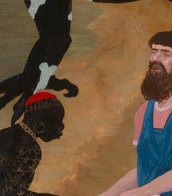

Anatoly (Anatoli) Timofeevich Zverev was a Russian artist, a member of the non-conformist movement and a founder of Russian Expressionism in the 1960s. He spent all of his life in Moscow.
He did not have a solo show in Russia until shortly before his death in 1986 and his work was exhibited in small, underground galleries. Throughout his career he was harassed and persecuted by the Soviet authorities especially as his international success grew.


Anatoly (Anatoli) Timofeevich Zverev was a Russian artist, a member of the non-conformist movement and a founder of Russian Expressionism in the 1960s. He spent all of his life in Moscow.
He did not have a solo show in Russia until shortly before his death in 1986 and his work was exhibited in small, underground galleries. Throughout his career he was harassed and persecuted by the Soviet authorities especially as his international success grew.


Anatoly (Anatoli) Timofeevich Zverev was a Russian artist, a member of the non-conformist movement and a founder of Russian Expressionism in the 1960s. He spent all of his life in Moscow.
He did not have a solo show in Russia until shortly before his death in 1986 and his work was exhibited in small, underground galleries. Throughout his career he was harassed and persecuted by the Soviet authorities especially as his international success grew.


Anatoly (Anatoli) Timofeevich Zverev was a Russian artist, a member of the non-conformist movement and a founder of Russian Expressionism in the 1960s. He spent all of his life in Moscow.
He did not have a solo show in Russia until shortly before his death in 1986 and his work was exhibited in small, underground galleries. Throughout his career he was harassed and persecuted by the Soviet authorities especially as his international success grew.


Anatoly (Anatoli) Timofeevich Zverev was a Russian artist, a member of the non-conformist movement and a founder of Russian Expressionism in the 1960s. He spent all of his life in Moscow.
He did not have a solo show in Russia until shortly before his death in 1986 and his work was exhibited in small, underground galleries. Throughout his career he was harassed and persecuted by the Soviet authorities especially as his international success grew.


Anatoly (Anatoli) Timofeevich Zverev was a Russian artist, a member of the non-conformist movement and a founder of Russian Expressionism in the 1960s. He spent all of his life in Moscow.
He did not have a solo show in Russia until shortly before his death in 1986 and his work was exhibited in small, underground galleries. Throughout his career he was harassed and persecuted by the Soviet authorities especially as his international success grew.


Anatoly (Anatoli) Timofeevich Zverev was a Russian artist, a member of the non-conformist movement and a founder of Russian Expressionism in the 1960s. He spent all of his life in Moscow.
He did not have a solo show in Russia until shortly before his death in 1986 and his work was exhibited in small, underground galleries. Throughout his career he was harassed and persecuted by the Soviet authorities especially as his international success grew.


Anatoly (Anatoli) Timofeevich Zverev was a Russian artist, a member of the non-conformist movement and a founder of Russian Expressionism in the 1960s. He spent all of his life in Moscow.
He did not have a solo show in Russia until shortly before his death in 1986 and his work was exhibited in small, underground galleries. Throughout his career he was harassed and persecuted by the Soviet authorities especially as his international success grew.


Anatoly (Anatoli) Timofeevich Zverev was a Russian artist, a member of the non-conformist movement and a founder of Russian Expressionism in the 1960s. He spent all of his life in Moscow.
He did not have a solo show in Russia until shortly before his death in 1986 and his work was exhibited in small, underground galleries. Throughout his career he was harassed and persecuted by the Soviet authorities especially as his international success grew.


Anatoly (Anatoli) Timofeevich Zverev was a Russian artist, a member of the non-conformist movement and a founder of Russian Expressionism in the 1960s. He spent all of his life in Moscow.
He did not have a solo show in Russia until shortly before his death in 1986 and his work was exhibited in small, underground galleries. Throughout his career he was harassed and persecuted by the Soviet authorities especially as his international success grew.


Anatoly (Anatoli) Timofeevich Zverev was a Russian artist, a member of the non-conformist movement and a founder of Russian Expressionism in the 1960s. He spent all of his life in Moscow.
He did not have a solo show in Russia until shortly before his death in 1986 and his work was exhibited in small, underground galleries. Throughout his career he was harassed and persecuted by the Soviet authorities especially as his international success grew.


Anatoly (Anatoli) Timofeevich Zverev was a Russian artist, a member of the non-conformist movement and a founder of Russian Expressionism in the 1960s. He spent all of his life in Moscow.
He did not have a solo show in Russia until shortly before his death in 1986 and his work was exhibited in small, underground galleries. Throughout his career he was harassed and persecuted by the Soviet authorities especially as his international success grew.


Anatoly (Anatoli) Timofeevich Zverev was a Russian artist, a member of the non-conformist movement and a founder of Russian Expressionism in the 1960s. He spent all of his life in Moscow.
He did not have a solo show in Russia until shortly before his death in 1986 and his work was exhibited in small, underground galleries. Throughout his career he was harassed and persecuted by the Soviet authorities especially as his international success grew.
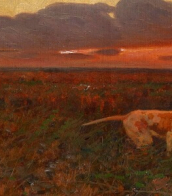

Anatoly (Anatoli) Timofeevich Zverev was a Russian artist, a member of the non-conformist movement and a founder of Russian Expressionism in the 1960s. He spent all of his life in Moscow.
He did not have a solo show in Russia until shortly before his death in 1986 and his work was exhibited in small, underground galleries. Throughout his career he was harassed and persecuted by the Soviet authorities especially as his international success grew.
